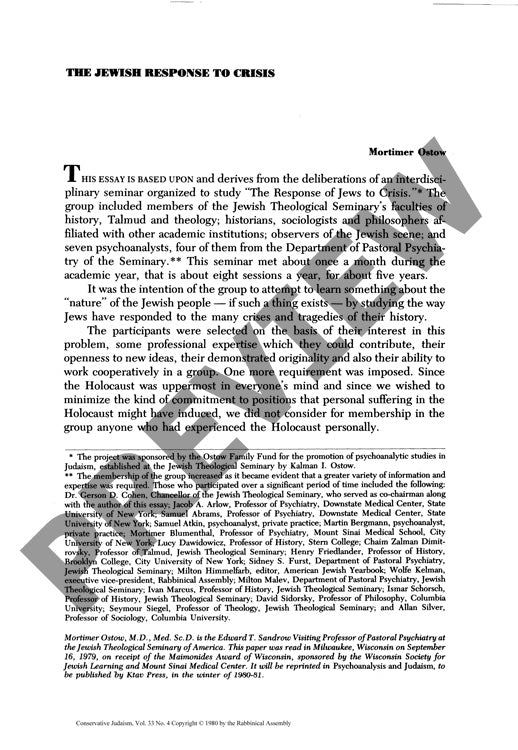The Jewish Response to Crisis
Couldn't load pickup availability
How did Jews maintain identity, faith and resilience across centuries of persecution? An interdisciplinary team at the Jewish Theological Seminary spent five years analyzing Jewish responses to historical trauma through Holocaust journals, classical texts from Josephus and Talmudic literature, medieval persecution accounts, and records from the Crusades, Spanish expulsions, Chmielnicki massacres, and Russian pogroms. Monthly seminars brought together historians, theologians, sociologists, philosophers, and psychoanalysts to examine how traumatic events - experiences that overwhelmed ordinary coping mechanisms - impacted Jewish communities and individuals through profound attacks on self-esteem. Rather than exhibiting exclusively Jewish characteristics, resistance emerged in multiple forms shaped by available resources, opportunities, and cultural contexts. Religious responses ranged from maintaining ritual observance under persecution to developing transcendental movements like mysticism, apocalypticism, and messianism as ways to process intolerable realities. The systematic documentation of trauma through journals and historical accounts served dual purposes: bearing witness and enabling a "working through" process that typically occurred a generation later, helping reconstruct personal and group narratives to preserve continuity, identity, and hope. While certain response patterns remained consistent across time, these were primarily determined by external circumstances and available resources rather than inherent Jewish characteristics, with assaults on collective self-esteem playing a central role in shaping both individual and communal behavior.

More Information
-
Physical Description
-
Publication Information
Published 1980
ISBN
-
Publication Credits
Mortimer Ostow

